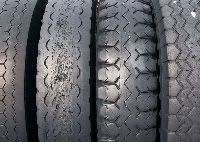Solid Cleantech Business Plans – Why They’re Somewhat Rare


Part of the issue here, is that there are just so many good ideas.
We don’t need dozens of start-up neighborhood electric vehicle companies run by people with no real background and experience, assembling Chinese-made parts and selling them into gated communities in the US. We don’t need – and will not have — three or four different infrastructures for delivering liquid fuels to vehicles. Conversely, we do need – and will have – a highly efficient and eco-friendly way of converting the waste stream of used tires into energy, carbon black, and recycled steel.
When I told a friend that I didn’t think the hydrogen economy would come about, he asked, “Why? Is it impossible?” he asked.
“No, it’s perfectly possible,” I responded, “but it’s impractical, just like growing plants indoors, pulling all the hydrogen sulfide out of the Black Sea, or any of the other concepts that I see every day that will simply never happen. What makes it a bad idea isn’t that it’s theoretically impossible; it’s that there are far better ideas that compete against it. If you could get all the gold out of a cubic mile of seawater, you’d be rich,” I reminded him. “But it’s just not a practical thing to do.”
Most of the business plans I review fall into this category to one degree or another. They are visions of a world that I believe will never exist.
Could I be wrong? Of course. But I’m obligated to make the call, and promote only the ideas I believe have real merit.
